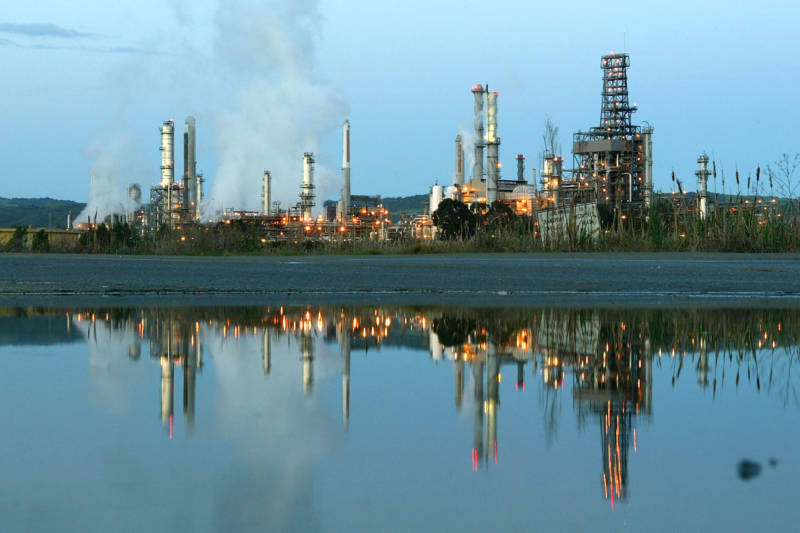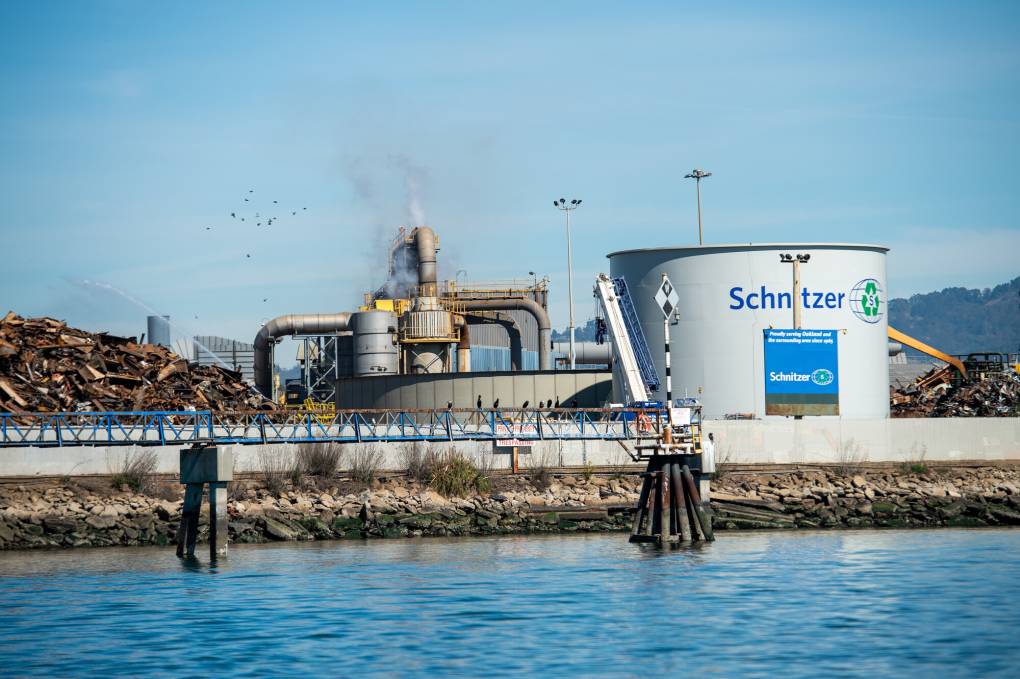A bill that would have expanded California’s air-quality monitoring system to include more refineries was vetoed by Gov. Gavin Newsom, who cited concerns on Monday about local control and high implementation costs in the decision. Groups supporting the bill, however, say these reasons “aren’t supported by the facts.”
SB 674, introduced by state Sen. Lena Gonzalez (D-Long Beach), would have expanded the statewide requirement for real-time air monitoring along the fencelines of petroleum refineries to sites producing biofuel and other pollutants. It also would have required that communities near refineries, including at the Chevron Refinery in Richmond, where air quality has been notoriously poor, receive a notification when pollutants were above specified thresholds and required efforts to remedy poor conditions.
Newsom told state representatives in a letter on Monday that he could not sign the bill, writing that there was no state funding available for reimbursements to the refineries implementing the systems in the event that it might be needed. The program put the cost burden on refineries, who would have paid through a series of fees over multiple years.
Two of three air quality districts where the refineries are located, the Bay Area and South Coast Air Quality Management District, which represents Southern California, supported the bill, according to Oscar Espino-Padron, a senior attorney at Earthjustice. He said the entities would have remained “empowered to implement [its] measures and to exercise their discretion to tailor this monitoring program based on when it’s appropriate in their jurisdictions.”


